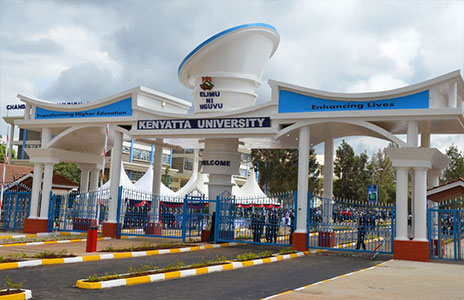
The Bachelor of Science in Human Resource Management prepares students for career advancement in the human resources field, with a focus on staff recruitment, staff retention, staff benefits, compensation, business principles, law, and ethics.
Students can pursue a career path as an HR Generalist or an HR Specialist. HR Generalists are typically found in smaller businesses and have broad responsibility for all areas of human resource management.
As an HR practitioner, you will be expected to understand sustainable work practices and policies and make organizational decisions within the broader social and economic environment and work effectively with stakeholders.
This Human Resource Management program will enable you to become comfortable using contemporary media and communication tools, have the ability to explain concepts, and put forward proposals in a coherent and logical manner, therefore giving you an edge over your colleagues.
Most entry-level jobs are found in large organizations within one of five HR specialty areas: Workforce Planning and Employment, Training and Development, Compensation and Benefits, Employee and Labor Relations, and Risk Management.
Examples of typical entry-level positions include:
- Recruiter
- Training Specialist
- Onboarding Specialist
- Benefits Administrator
- Employee Relations Specialist
- Safety Specialist
- Employee Assistance Program Counselor
- HR Information Management Specialist
- Human Resource Associate
Entry Requirements
- Mean grade of KCSE C+ or equivalent with at least C in Mathematics and English.
- An A-Level certificate with 2 principal passes and a credit pass in Mathematics at O-Level
- Degree from a recognized university.
- Mean grade of C (plain) at KCSE and C (plain) in Mathematics and English plus a Diploma in Human Resource Management and/or a diploma relevant to disciplines in business.
- Mean grade of C- (C Minus) at KCSE plus a certificate and a diploma in Human resource management and/or a certificate and diploma relevant to disciplines in business.
Objectives of Bachelor of Science in Human Resource Management
The Bachelor of Science in Human Resource Management degree is designed to provide graduates with the knowledge and skills needed for careers in the large and growing human resource field.
This degree provides students with a strong business background and an in-depth knowledge of the Human Resource Management discipline.
The Bachelor of Science in Human Resource Management degree teaches practical skills across HR disciplines including staffing, training, HR information systems, benefits, global HRM, and more. All courses are case-based and application-based.
Bachelor of Science in Human Resource Management graduates will be able to:
- Motivate, lead, and manage a diverse workforce
- Recruit and hire top talent using industry best practices
- Develop and implement compensation systems to reward employee performance
- Create and facilitate training and development programs to optimize performance
- Assess and develop interventions to enhance employee engagement and performance
- Integrate human resource management systems in dynamic and multicultural global organizations
- Apply effective management consulting skills to diagnose and solve complex organizational issues
What you will study
The Bachelor of Science in Human Resource Management degree program has a focused curriculum that covers a wide array of topics. These topics include:
Year 1
- Communication Skills
- Development Studies/ UCU 106: Ethics, Citizenship & Diversity
- Critical Thinking
- Business Studies
- Business Law I
- Principles of Management
- Fundamentals of Accounting I
- Introduction to Sociology
- Motivation and Stress Management
- Introduction to Psychology
- Career Guidance and Management
- Human Resource Computer Interaction
- Business Ethics
Year 2
- Organization Behaviour
- Cross-Cultural Psychology
- HR Policy Analysis and Management
- Organization Development
- Organisational Learning and Innovation
- Human Resource Planning and Job Analysis
- Conflict Management
- Pensions Management
- Corporate Governance in Human Resource Management
- Leadership Development and Management
- Labour Laws
- Risk Management
Year 3
- Human Resource Management I
- Human Resource Information Systems
- Human Resource Management II
- Employee Training and Development
- Business Communication
- Office Management
- Public Relations
- Recruitment and Staffing
- Work and Reward
- Performance Management
- Research Methods
- Organization Theory
Year 4
- Managing Diverse Work Force
- Strategic Human Resource Management
- Industrial and Labour Relations
- Contemporary Issues in human resource management
- Employee Counselling and Crisis Management
- Total Quality Management
- Industrial Psychology
- Occupational Health, Safety and welfare
- Sociology of Work Management and Employment
- International Human Resource Management
- Change Management
- Industrial practicum
Related articles
-

A Guide to Civil Engineering Degree and Diploma Programs in Kenya
08-Nov-2025 -

Electrical Engineering in Kenya: A 2025 Guide for KCSE Graduates
08-Nov-2025 -

Mechanical Engineering in Kenya: A 2025 Guide for KCSE Graduates
08-Nov-2025 -

Engineering Courses in Kenya: A Guide for 2025 KCSE Graduates
08-Nov-2025 -

Education Pathways in Kenya — From Basic Education to Tertiary | College Guide
06-Nov-2025 -

The Bird and the Mirror: A Reflection on Identity, Perception, and Illusion
07-Feb-2025
Colleges offering Bachelor of Science in Human Resource Management

Ruiru
Kenyatta University

Kirinyaga Central
Kirinyaga University

Likoni
Maasai Mara University

Kisumu West
Maseno University

Belgut
University of Kabianga

Dagoretti South
Africa Nazarene University

Garissa Township
Garissa University

Mathira
Karatina University

Nyaribari Chache
Kisii University

Sotik

